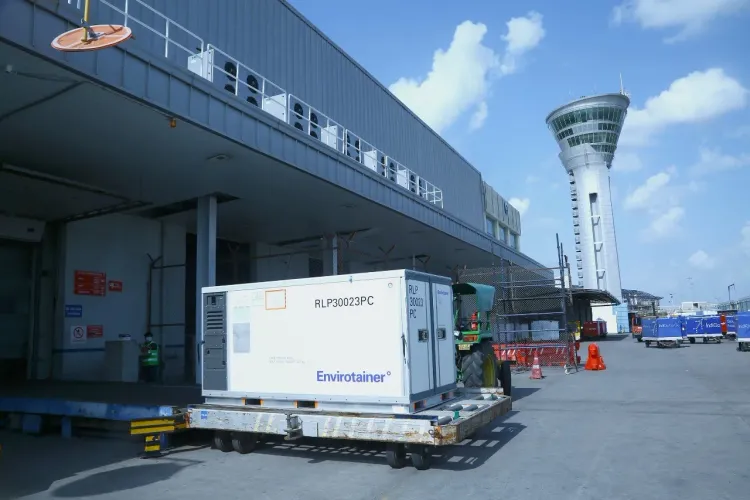How is the air cargo industry showing resilience amid global challenges?

Synopsis
Key Takeaways
- Resilience of the air cargo industry during global crises.
- Importance of adapting and evolving in challenging times.
- Goal to achieve 10 million metric tonnes of air cargo movement annually.
- Collaboration with government and stakeholders for strategic growth.
- Need for enhanced connectivity to tier-2 and tier-3 cities.
New Delhi, July 11 (NationPress) The air cargo industry has continuously demonstrated its resilience and adaptability during tough times, stated Sanjiv Edward, the President of the Air Cargo Forum India (ACFI), on Friday.
In an interview with IANS at the ACFI Annual Conclave 2025, he emphasized how the Indian air cargo sector has repeatedly showcased its strength, particularly during global disruptions.
“During the Covid pandemic, when the nation was in dire need of essential supplies, the air cargo sector stepped up -- delivering oxygen cylinders, vital medications, and more,” Edward told IANS.
“I am confident in the industry's capability to transform challenges into opportunities,” he remarked.
During the conclave titled “Air Cargo Leadership in a Changing World,” Edward noted that it attracts prominent figures from across the cargo supply chain -- including airport cargo handlers, airlines, freight forwarders, express operators, and customs brokers -- to discuss future strategies and policy directions.
He indicated that the primary goal of the conclave is to align the industry's initiatives with the government's target of achieving 10 million metric tonnes of air cargo movement annually, an increase from the current 3.7 million metric tonnes.
“To assist in reaching this target, ACFI also unveiled a knowledge report at the event,” he added.
Edward clarified that the report, created by ACFI’s knowledge and research division, evaluates current cargo capacity and outlines essential measures needed to enhance operations.
“We need to simplify transshipment, expand freighter capacity, and improve connectivity for tier-2 and tier-3 cities. These are vital components for growth,” he stated.
Regarding future collaborations, Edward mentioned that ACFI is collaborating closely with the Ministry of Civil Aviation, providing recommendations on policy reforms to accomplish the 10 million metric tonnes vision.
He commended the ministry for already implementing several beneficial changes, such as permitting passenger charters with belly cargo capacity for goods transport and easing freighter restrictions for additional cities.
“We’re also negotiating with state governments, including Uttar Pradesh and Chhattisgarh, to sign MoUs focused on skilling and logistics advisory. These efforts will help unlock regional air cargo potential,” he continued.
When queried about the challenges currently confronting the aviation sector, Edward recognized the tumultuous global landscape but remained hopeful.
“Indeed, we exist in uncertain times, but the air cargo industry has repeatedly proven its ability to adapt, evolve, and emerge stronger. Our resilience is our greatest asset,” he concluded.









